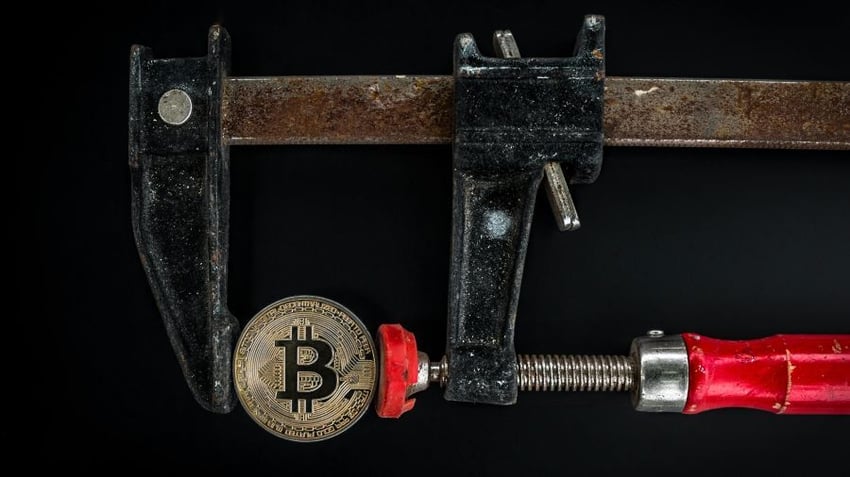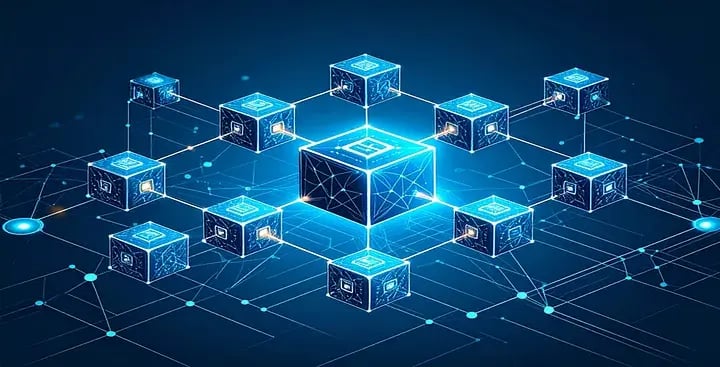The Intersection of AI and Blockchain: Opportunities and Challenges
Take outs:
- AI and blockchain together can revolutionize digital finance. From automated trading and fraud detection to DAO governance and data monetization, the synergy between these technologies enables smarter, more secure, and more efficient systems.
- Their integration presents major challenges. Issues like scalability, fragmented data, privacy risks, and regulatory uncertainty must be addressed for these tools to reach their full potential.
- Adoption will depend on collaboration and innovation. As new use cases emerge and technology evolves, responsible development and clear legal frameworks will be crucial to shaping a sustainable future.
The Intersection of AI and Blockchain: Opportunities and Challenges
Artificial Intelligence (AI) and blockchain are among the most transformative technologies of the modern era. AI focuses on replicating human intelligence to automate tasks and enhance decision-making, while blockchain provides a decentralized, transparent, and secure system for recording data. Their convergence has the potential to revolutionize various sectors, especially cryptocurrency. Together, AI and blockchain offer powerful synergies, but they also introduce unique challenges.

Opportunities at the Intersection of AI and Blockchain
Smarter Trading and Investment Strategies
AI algorithms can process vast amounts of market data to identify trading opportunities in real time. When combined with blockchain platforms, AI can:
- Execute trades automatically through smart contracts
- Minimize human error and emotional decision-making
- Improve accuracy and efficiency in decentralized finance (DeFi)
Fraud Detection and Security Enhancement
Blockchain’s immutable ledger is ideal for secure transaction tracking. AI can analyse patterns to detect anomalies and prevent fraud by:
- Identifying suspicious wallet activities
- Predicting and mitigating security breaches
- Supporting real-time compliance and regulatory oversight
DAO Management and Governance
AI can streamline Decentralized Autonomous Organizations (DAOs) by:
- Analysing proposals and forecasting voting outcomes
- Managing intelligent contracts
- Enabling adaptive and data-driven governance
Data Monetization and Privacy Protection
AI needs large datasets to perform well. Blockchain allows individuals to maintain control over their data while monetizing it:
- Storing personal data on-chain with user-controlled access
- Training AI on decentralized, anonymized datasets
- Rewarding data sharing through crypto tokens
Improved Scalability and Network Efficiency
AI can optimize blockchain operations by:
- Predicting congestion and managing transaction loads dynamically
- Enhancing consensus mechanisms such as proof-of-stake
- Promoting energy-efficient solutions in proof-of-work systems
Challenges in Integrating AI and Blockchain
Scalability and Performance Limitations
Highly decentralized blockchains often suffer from slow speeds and low throughput. Integrating AI increases demand for:
- More computing power
- Faster data processing
- Efficient consensus models
These requirements may conflict with blockchain’s decentralized architecture.
Data Quality and Accessibility
AI requires high-quality, structured data. However, blockchain data can be:
- Fragmented across networks
- Lacking contextual or off-chain information
- Difficult to structure for AI model training
Privacy and Ethical Concerns
Using blockchain data for AI training raises privacy risks, especially with personal data. Even anonymized information can be re-identified using advanced AI, leading to:
- Possible breaches of GDPR and other regulations
- Ethical issues surrounding data use and surveillance
Interoperability and Standardization Gaps
AI and blockchain systems often lack shared standards. Integration depends on:
- Unified data-sharing protocols
- Compatibility across blockchain networks
- Standardized smart contract frameworks
Regulatory Uncertainty
Combining AI and blockchain introduces legal ambiguity:
- Who is responsible for AI-driven smart contract outcomes?
- How should autonomous DAOs be governed?
- Which laws apply to AI trained on blockchain-based personal data?
Unclear regulations can slow innovation and adoption.
Emerging Use Cases
- Fetch.ai: A decentralized AI network using blockchain for autonomous agent-based economies.
- Numerai: A hedge fund that crowdsources encrypted data to train AI models.
- Ocean Protocol: A decentralized platform that enables AI model training using tokenized data.

Final Thoughts
The convergence of AI and blockchain is opening up exciting possibilities in the crypto space. These technologies can enhance security, efficiency, and transparency while enabling smarter tools and decentralized systems. However, to fully realize their potential, developers, regulators, and users must overcome significant technical, legal, and ethical hurdles.
As blockchain matures and AI becomes more widely adopted, their integration is likely to play a pivotal role in shaping the future of digital finance and global economies. Collaboration and responsible innovation will be key to unlocking this transformative synergy.
Share this
You May Also Like
These Related Stories

Maintaining Work-Life Balance as a Business Owner

Get Summer-Ready While Cutting Emissions and Bills



No Comments Yet
Let us know what you think